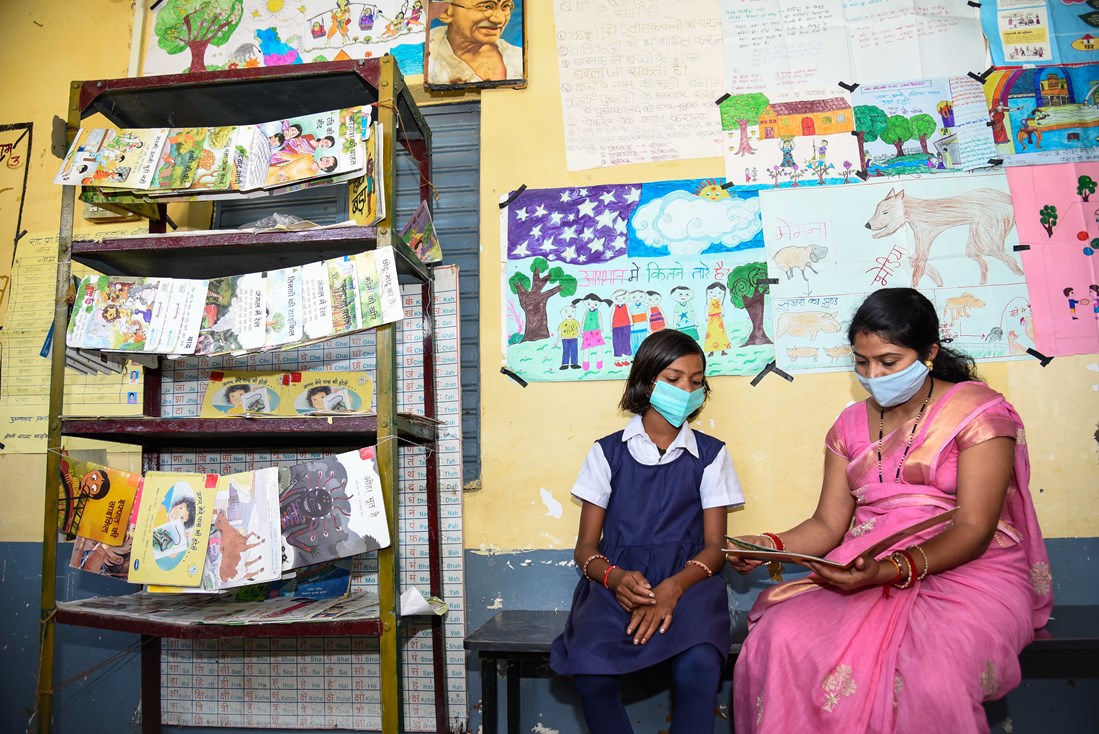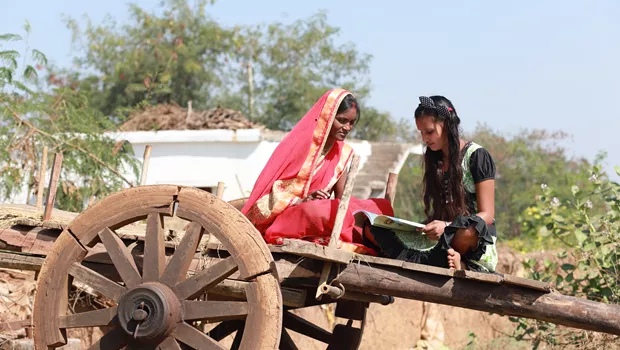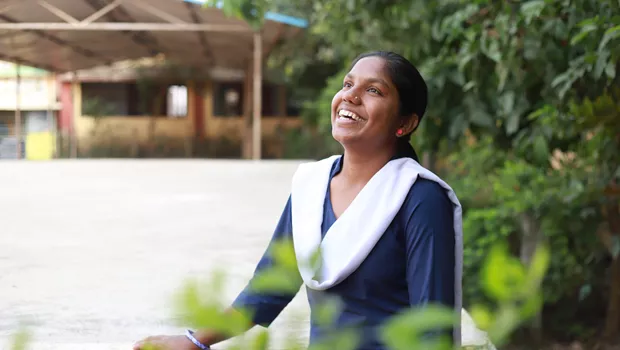In India, some students have not seen the inside of a classroom since March 2020. Even now, some schools are only partially open — meaning students in India have experienced 73 weeks of partial and/or full school closures according to the latest UNESCO report.
But something as simple as delivering a book can be the one thing that keeps those students motivated to learn.

Kirma, an eight-year-old who lives in the state of Madhya Pradesh in India and was recently featured in a Financial Times photo essay, is one of those students. On a typical day, the third grader would be going to school; however, with her school shut due to the COVID-19 pandemic, she hasn’t been able to do so.
In the first few days of the lockdown, Kirma spent her days helping her parents in their day-to-day work. Despite being busy throughout the day, Kirma missed school — the lessons, the games and most importantly the vibrant books — all of which made going into the classroom enjoyable.
To help keep Kirma learning at home, her teacher, Sapna, started visiting her house. Sapna would deliver books and learning materials, as well as interact with Kirma’s parents teaching them on how to use the workbooks and worksheets.

Kirma’s uncle Rikesh, who is in his first year of college, stepped up to support his young niece in her learning journey during the pandemic as well.
“I teach her for one hour a day and give her daily homework. She takes an interest in her studies and completes her homework on time; she shows me her work daily. She narrates stories with enthusiasm," said Rikesh.
Sapna would take time to meet with Rikesh and introduce him to the study materials for Kirma. The materials and resources were provided to Sapna and other government schoolteachers under the Strengthening Academic Leadership for Early Reading (SALER) program by UNICEF, Room to Read India, and the Department of Education (Madhya Pradesh). This program includes a workbook, notebooks, library books, textbooks and digital learning materials.

“I talk to Kirma and Rikesh when I visit her village and through phone calls. I always motivate them and guide Rikesh, how he can easily support her with the help of these valuable resources, I share e-content through WhatsApp groups. Now when I see Kirma, I am happy that she is learning, and she can read and write. Thanks for the support we are getting from UNICEF, Room to Read India, and our education department,” said Sapna, Kirma’s teacher.
The Room to Read India team filled in the gaps for Rikesh to help him understand how he could use these study materials. With regular calls and guidance from Room to Read‘s team in India, Rikesh learned to use the study material provided for Kirma.

In India, Room to Read has worked extensively to make sure students like Kirma are still learning, despite school closures. For the first half of this year (January 1 to June 30, 2021), Room to Read has accomplished and delivered the following with our Literacy Program:
- More than 10 million direct messages sent to teachers, students and their families — to keep children learning — that further programmatic objectives of the Literacy Program.
- Nearly 40 unique materials uploaded onto government websites, helping Room to Read deliver literacy content to a broader audience.
- More than 7,500 hours of virtual training and support delivered to teachers, school leaders, authors, etc.
- Nearly 144,000 children received non-digital materials (books, worksheets) in support of their at-home learning and literacy development.
And with our Girls’ Education Program, Room to Read delivered:
- More than 637,000 direct messages sent to teachers, students and their families — to keep children learning — that further programmatic objectives of the Girls' Education Program.
- Nearly 52,000 individual remote mentoring sessions were delivered.
- More than 11,500 girls received individual mentoring sessions.
To keep children engaged in their studies and on track to become lifelong learners, Room to Read adapted our programs to reach children in innovative ways during the crisis (as noted above). These remote interventions have helped students develop their literacy skills even in the face of school closures and numerous other challenges.



